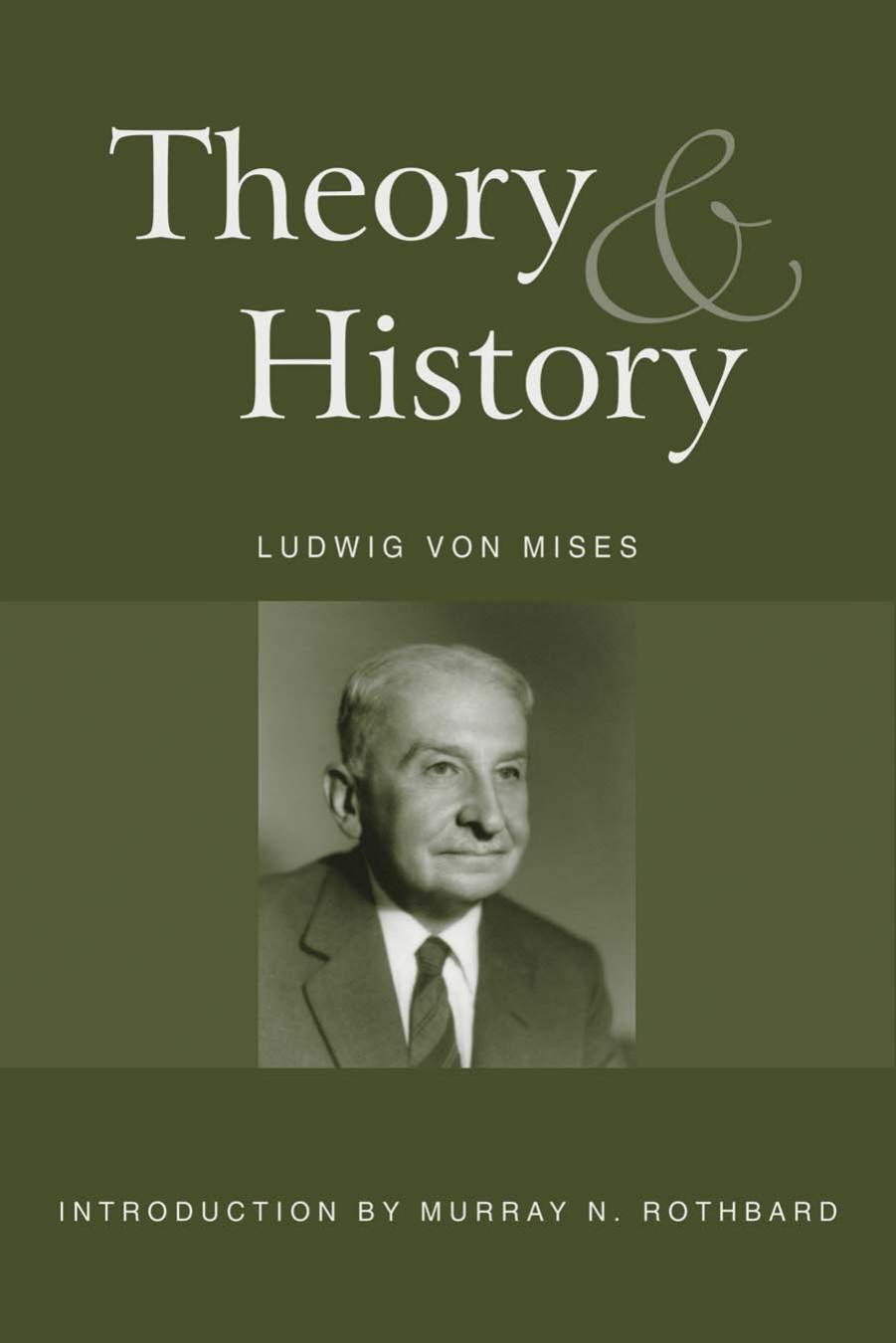Theory and History by Ludwig von Mises

Author:Ludwig von Mises [Mises, Ludwig von]
Language: eng
Format: epub, pdf
Publisher: Ludwig von Mises Institute
Published: 2009-11-09T20:00:00+00:00
Chapter 10. Historicism
1. The Meaning of Historicism
HISTORICISM developed from the end of the eighteenth century on as a reaction against the social philosophy of rationalism. To the reforms and policies advocated by various authors of the Enlightenment it opposed a program of preservation of existing institutions and, sometimes, even of a return to extinct institutions. Against the postulates of reason it appealed to the authority of tradition and the wisdom of ages gone by. The main target of its critique was the ideas that had inspired the American and the French Revolutions and kindred movements in other countries. Its champions proudly called themselves antirevolutionary and emphasized their rigid conservatism. But in later years the political orientation of historicism changed. It began to regard capitalism and free trade—both domestic and international—as the foremost evil, and joined hands with the “radical” or “leftist” foes of the market economy, aggressive nationalism on the one hand and revolutionary socialism on the other. As far as historicism still has actual political importance, it is ancillary to socialism and to nationalism. Its conservatism has almost withered away. It survives only in the doctrines of some religious groups.
People have again and again stressed the congeniality of historicism and artistic and literary romanticism. The analogy is rather superficial. Both movements had in common a taste for the conditions of ages gone by and an extravagant overestimation of old customs and institutions. But this enthusiasm for the past is not the essential feature of historicism. Historicism is first of all an epistemological doctrine and must be viewed as such.
The fundamental thesis of historicism is the proposition that, apart from the natural sciences, mathematics, and logic, there is no knowledge but that provided by history. There is no regularity in the concatenation and sequence of phenomena and events in the sphere of human action. Consequently the attempts to develop a science of economics and to discover economic laws are vain. The only sensible method of dealing with human action, exploits, and institutions is the historical method. The historian traces every phenomenon back to its origins. He depicts the changes going on in human affairs. He approaches his material, the records of the past, without any prepossessions and preconceived ideas. The historian utilizes sometimes, in preliminary, merely technical, and ancillary examination of these sources, the results of the natural sciences, as for instance in determining the age of the material on which a document of disputed authenticity is written. But in his proper field, the exposition of past events, he does not rely upon any other branch of knowledge. The standards and general rules to which he resorts in dealing with the historical material are to be abstracted from this very material. They must not be borrowed from any other source.
The extravagance of these claims was later reduced to a more modest measure when Dilthey stressed the role psychology plays in the work of the historian.1 The champions of historicism accepted this restriction and did not insist on their extreme description of the historical method.
Download
This site does not store any files on its server. We only index and link to content provided by other sites. Please contact the content providers to delete copyright contents if any and email us, we'll remove relevant links or contents immediately.
The Secret History by Donna Tartt(16705)
The Social Justice Warrior Handbook by Lisa De Pasquale(11501)
Thirteen Reasons Why by Jay Asher(7824)
This Is How You Lose Her by Junot Diaz(5818)
Weapons of Math Destruction by Cathy O'Neil(5068)
Zero to One by Peter Thiel(4858)
The Myth of the Strong Leader by Archie Brown(4805)
Promise Me, Dad by Joe Biden(4467)
Beartown by Fredrik Backman(4457)
How Democracies Die by Steven Levitsky & Daniel Ziblatt(4439)
Stone's Rules by Roger Stone(4434)
The Fire Next Time by James Baldwin(4363)
100 Deadly Skills by Clint Emerson(4103)
A Higher Loyalty: Truth, Lies, and Leadership by James Comey(4051)
Rise and Kill First by Ronen Bergman(4036)
The David Icke Guide to the Global Conspiracy (and how to end it) by David Icke(3908)
The Farm by Tom Rob Smith(3890)
Secrecy World by Jake Bernstein(3800)
The Doomsday Machine by Daniel Ellsberg(3747)
